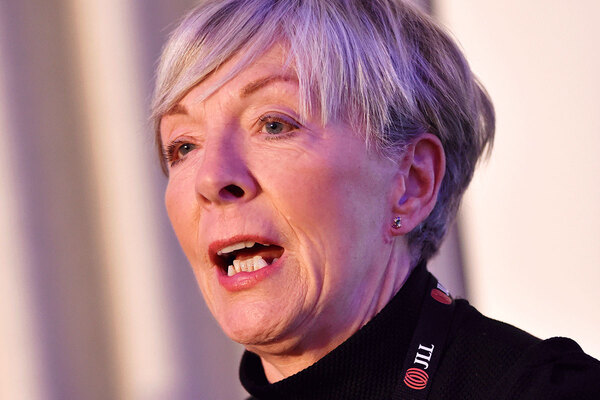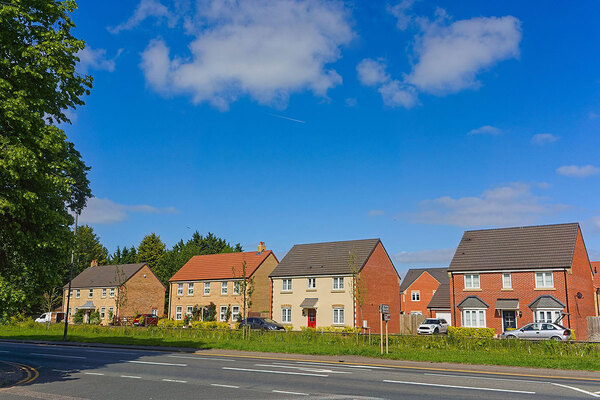Heylo RP downgraded to non-compliant over ‘issues of serious regulatory concern’
For-profit provider Heylo Housing has been downgraded to non-compliant gradings of G3 and V3 after an investigation found “issues of serious regulatory concern”, partly due to its relationship with its parent company.
The Regulator of Social Housing (RSH) said it lacks assurance that the landlord, which specialises in shared ownership, has “adequate control” of its social homes, leaving their future subject to “decisions driven by the interests of unregistered connected companies”.
Heylo RP leases homes from other companies within the group, and recorded a leasehold interest in 5,280 properties in its year-end accounts to 30 September 2021. The company says that it now has more than 7,000 homes.
The regulator previously placed the for-profit on its gradings under review list in July last year, while it investigated it. The group behind the for-profit includes entities backed by debt from major global investment manager, BlackRock, although the RSH judgement considers only the registered provider, Heylo RP.
In its 21 December judgement, marking the first published regulatory assessment of the provider, the RSH said it found “issues of serious regulatory concern” and “does not have confidence” in Heylo’s ability to manage its risks adequately and ensure its own long-term viability.
Harold Brown, senior assistant director for investigations and enforcement at the RSH, said: “It is essential that registered providers do not enter into arrangements that compromise their ability to meet regulatory obligations.
“It is also vital that they have sufficient control over the social homes they provide to ensure their long-term viability. Heylo has failed to do this.”
Financial arrangements
The RSH said that the arrangements Heylo has entered have resulted in it being unable to provide assurance that it meets the requirements of the Governance and Financial Viability Standard to ensure that social housing assets are not being put at undue risk.
Heylo has “nominal ownership” of properties under long leases with connected companies, which it calls investment pods, that secure funding from debt investors and grants, the judgement noted.
The regulator said that the for-profit does not hold obligations for finance and derives no economic interest in the properties as all income is passed through to the investment pods via a managing agent. This agent is also connected to the Heylo group.
The RSH said that Heylo relies on arrangements with its unregistered parent to fund its operations.
The investment pods have the ability to require Heylo to surrender its leases in short order to protect their lender interest, the regulator said.
Heylo was founded following the acquisition of an existing registered provider (Three Conditions Housing Association) in 2017, so it did not go through a registration application to the regulator.
The RSH said the for-profit’s business plan and wider governance arrangements were therefore not considered as part of the regulator’s registration assessment process.
The regulator said it “lacks assurance” that Heylo understood and managed the “likely impact that arrangements with its parent, investment pods and managing agent would have on its current and future business and regulatory compliance”.
In addition, the RSH said it lacks assurance that Heylo has taken “adequate steps” to fully identify risks across a range of scenarios through detailed and robust stress-testing and identify mitigating actions to protect its social housing.
The regulator said that a “deterioration of financial position” in a group company could trigger a requirement for Heylo to surrender its leases.
The RSH said in its regulatory judgement: “While Heylo RP may be able to take further steps to proactively monitor risks relating to the financial position of other group members, its ability to enact mitigations if risks in a group company are identified is limited because it requires the agreement of other group companies and consideration of their interests and priorities.
“We expect registered providers to have adequate control over their social housing assets so that they can manage their resources effectively to ensure their long-term viability. Within its current business model Heylo RP has effectively ceded control of its social housing assets to the investment pods, leaving their future susceptible to decisions driven by the interests of connected group companies.
“These arrangements pose a significant risk to Heylo RP’s ability to protect its social housing assets and ensure its long-term viability.”
Governance
The RSH said its in-depth assessment (IDA) identified “significant weaknesses” in Heylo RP’s governance.
The regulator said this includes “inadequate oversight” of the services provided by the managing agent, and “weak arrangements” for the RP to be consulted on investment decisions.
The RSH said it has a “lack of assurance” that clear roles, responsibilities and accountabilities had been established for the RP’s board.
The regulator said that it found inadequate arrangements in place for the RP to obtain appropriate support or assistance as necessary from its unregistered parent.
The RSH added that the provider had failed to review compliance with its chosen code of governance since its inception in 2017.
Improvement plan
Heylo has commissioned an independent review of its governance arrangements and made new board appointments, the regulator noted.
It added that the for-profit has made some changes in its arrangements within the Heylo group which are intended to improve the support from its parent company and strengthen its role in management of the properties and investment decisions.
The RSH said it will continue to engage with Heylo to ensure that it addresses all the issues identified in its regulatory judgement.
Heylo said it will continue to work collaboratively with the regulator in order to ensure its governance and financial viability requirements are met.
However, a spokesperson for Heylo said that the regulator had not taken into consideration the “over £1bn of assets held by the wider Heylo Housing Group… even though Heylo RP and other Heylo Housing Group companies are 100 per cent commonly controlled”.
It added that it believes it would have received a compliant viability grading “had the regulator been able to consider the wider group”.
Andrew Geczy, chief executive of Heylo Housing, said: “We are disappointed with this judgement given the considerable work we have undertaken with the regulator to explain Heylo’s robust structure. We expect to make the successful case for governance and financial viability following further constructive collaboration with the regulator.
“Throughout the many months of the IDA process, it became clear the way that the Heylo RP fits within the unique Heylo structure was an unfamiliar one to the regulator. As part of that process, the business has already undertaken several steps to address the issues raised by the regulator during the IDA process prior to receiving the gradings under review.
“We recognise the ongoing discussion with regards to our corporate structure and would also note that the governance issues have all been addressed since.
“In their assessment of viability in this judgement, the regulator’s scope was limited to Heylo RP; the regulator did not review or consider the viability of the investment partners or the Heylo group as a whole.
“Heylo RP was founded following the acquisition of a registered provider in 2017, and therefore the group structure was not reviewed by the regulator as part of that process. However, Heylo and its group of institutional investors are confident that it has been and remains a sound, well-run business, with a strong financial standing over that time.
“Our homes are safe and well-maintained, and we are proud of our high customer satisfaction levels. Our strong business model has been evidenced by our ability to attract significant capital investment to the sector with minimal risk, and more importantly, to allow thousands of families to buy an affordable home.
“We currently have £400m of capital to deploy to help more families own their own homes. We are also proud of our strong partnerships with Homes England and house builders across the country.
“Since 2014, Heylo has grown into the UK’s largest private investor in shared ownership housing, helping more than 7,000 households get onto the housing ladder, creating tremendous social value. We are committed to continue to deliver many more much-needed affordable homes over the coming years.”
Financial backing
In May 2021, Heylo Group used £362m of debt funding from asset manager BlackRock to support the purchase of an existing portfolio of 3,000 shared ownership homes linked to the group.
Social Housing later revealed that this restructuring enabled one of the company’s early financial backers, Lancashire County Pension Fund, to exit its interests in the group, having previously held both debt and equity investments in Heylo vehicles.
RELATED








